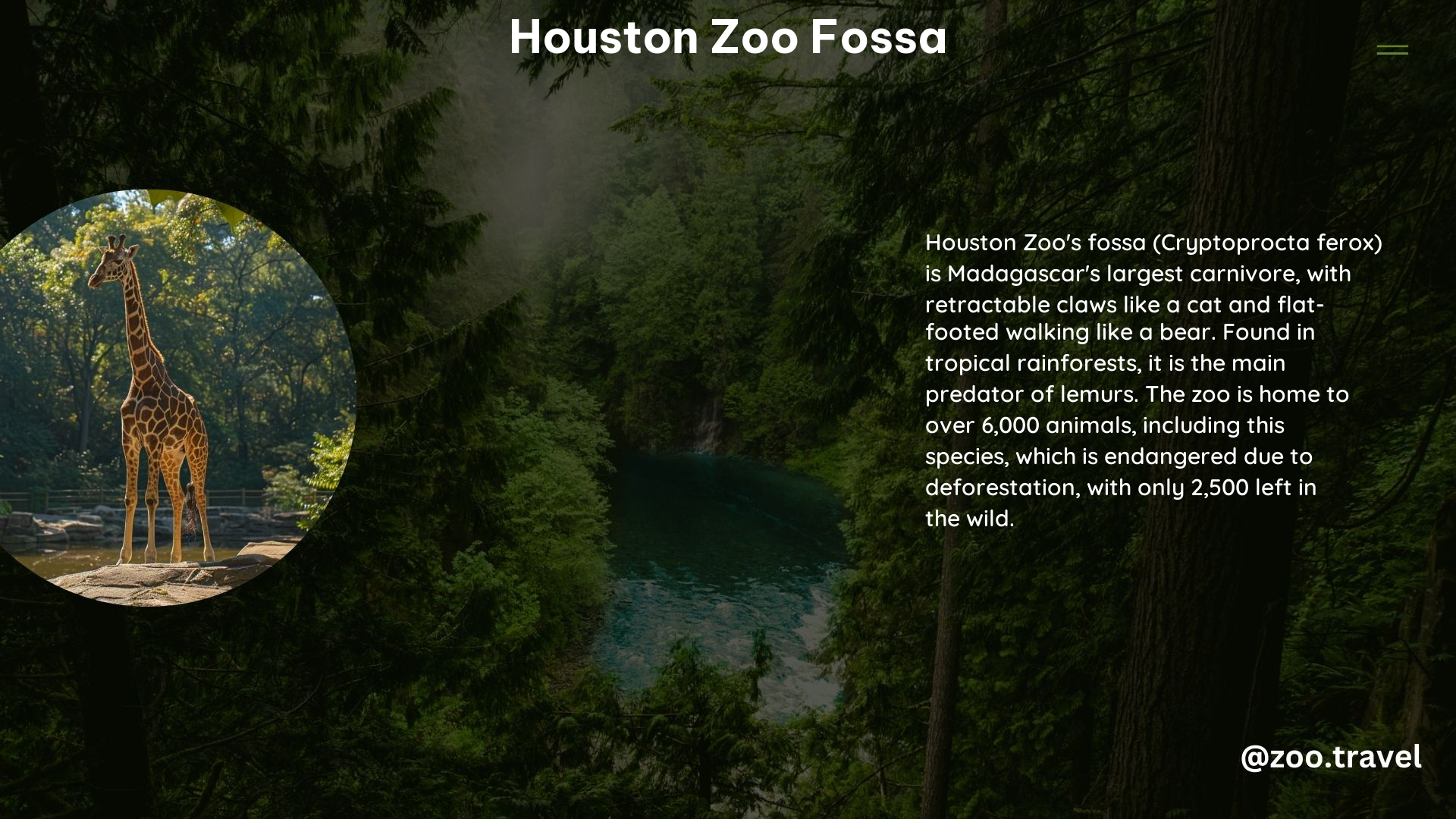The Houston Zoo is home to the fossa, a unique and captivating carnivore native to the tropical rainforests of Madagascar. As the largest predator on the island, the fossa plays a crucial role in the ecosystem, and visitors to the Houston Zoo have the opportunity to learn about and observe this remarkable animal up close.
Scientific Name and Range
The scientific name of the fossa is Cryptoprocta ferox, and it is the only living member of the Cryptoprocta genus. The fossa is found exclusively in the tropical rainforests of Madagascar, where it is the island’s top predator, preying on a variety of small to medium-sized mammals, including lemurs.
Location in the Houston Zoo

At the Houston Zoo, the fossa can be found in the exhibit across from the black bears. This exhibit provides visitors with a close-up view of the fossa’s unique features and behaviors, allowing them to gain a deeper understanding of this fascinating animal.
Unique Features of the Fossa
One of the most distinctive features of the fossa is its retractable claws, which are similar to those of a cat. However, unlike cats, the fossa walks flat on its feet, similar to a bear. This unique adaptation allows the fossa to move silently and stealthily through the dense rainforest, making it an efficient hunter.
Additional Facts about the Fossa
- The fossa is not part of the cat family but is more closely related to the mongoose and civet.
- Despite its cat-like features, such as long whiskers and eyes, the fossa is a unique and distinct species.
- In the wild, fossas are endangered due to deforestation, with only around 2,500 individuals remaining in Madagascar.
- Fossa cubs are born blind and toothless, and they have a long weaning period of around a year and a half.
Visiting the Houston Zoo
The Houston Zoo is open every day of the week, providing visitors with the opportunity to observe the fossa and other fascinating animals. With over 6,000 animal residents representing more than 600 different species, the Houston Zoo is a must-visit destination for anyone interested in wildlife and conservation.
